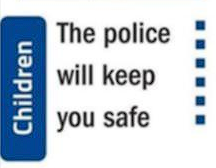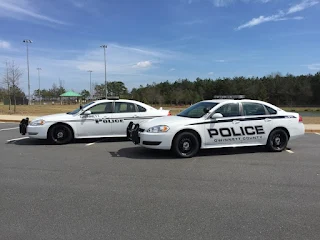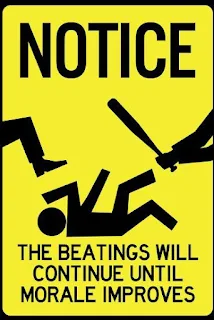Your society can label me for speaking loudly about liberty and justice, but even your cage won't silence me--you just handed me a captive audience.
 Mental health dominates conversations these days, with everyone acknowledging the critical importance of well-being and the myriad factors that contribute to our collective struggles. Despite all the dialogue, it feels like we've missed the mark. If you think things are getting better, I have to wonder what you're really looking at. We talk about mental health in the abstract but rarely address the raw, unfiltered experiences of those living through trauma. And while trauma knows many faces, I can't speak to anyone else's experience. I can only give you mine—and that's probably why I had to go through this recent experience.
Mental health dominates conversations these days, with everyone acknowledging the critical importance of well-being and the myriad factors that contribute to our collective struggles. Despite all the dialogue, it feels like we've missed the mark. If you think things are getting better, I have to wonder what you're really looking at. We talk about mental health in the abstract but rarely address the raw, unfiltered experiences of those living through trauma. And while trauma knows many faces, I can't speak to anyone else's experience. I can only give you mine—and that's probably why I had to go through this recent experience.
Right now, I could probably be labeled for many things depending on which government-funded agency you asked. No matter what labels make up the story of my past to others, I really want to address the things that have brought me to this state of mentality where I stand against corruption and for freedom—at any cost. After all, money is all they want, right?
 Even as I write this, my heart feels like it's caught in a vice grip, crushed under the weight of every beat. A lump hangs in my throat, seemingly trying to suffocate me; the weird shot of emotionally-pained heart and unshed tears build up; my hands tremble uncontrollably; a light drizzle of sweat expands over my on-fire body as it attempts to lose control in an all-out panic. If I can keep it together, great! I'll make another day. But if I'm unsuccessful in minimizing my anxiety and stress, it's a war with myself I don't even want to describe.
Even as I write this, my heart feels like it's caught in a vice grip, crushed under the weight of every beat. A lump hangs in my throat, seemingly trying to suffocate me; the weird shot of emotionally-pained heart and unshed tears build up; my hands tremble uncontrollably; a light drizzle of sweat expands over my on-fire body as it attempts to lose control in an all-out panic. If I can keep it together, great! I'll make another day. But if I'm unsuccessful in minimizing my anxiety and stress, it's a war with myself I don't even want to describe.
But here's the thing—I’m not alone. This is the reality of countless individuals for many reasons, but all point to some form of PTSD. We’ve reserved this term largely for former military—whose indescribable experiences have left them more than battle-scarred—but the truth is trauma is derived from all stages of life and experiences we’d never consider. It's as if the whole world were walking on eggshells and didn’t even know it.
 We’re conditioned to believe that state-funded medical care is a solution, but all it does is give corrupt governments a bigger hand in violating people, leveraging their authority to assign crippling labels that discredit and silence individuals. They don’t want us to have purpose—they want us pliable, controlled, and broken. Cognitive dissonance ought to fall under mental disorders, but then someone would have to acknowledge that we’ve built our world on a show of contradictions designed to replace the ancient sense of purpose—the stuff that made conquerors like Caesar formidable foes. Those who can’t be convoluted by overreaching governments are targeted by other means—drugs, alcohol, poverty—demands of the state meant to infringe upon their rights and manipulate them into submission.
We’re conditioned to believe that state-funded medical care is a solution, but all it does is give corrupt governments a bigger hand in violating people, leveraging their authority to assign crippling labels that discredit and silence individuals. They don’t want us to have purpose—they want us pliable, controlled, and broken. Cognitive dissonance ought to fall under mental disorders, but then someone would have to acknowledge that we’ve built our world on a show of contradictions designed to replace the ancient sense of purpose—the stuff that made conquerors like Caesar formidable foes. Those who can’t be convoluted by overreaching governments are targeted by other means—drugs, alcohol, poverty—demands of the state meant to infringe upon their rights and manipulate them into submission.
Dusphemeo: A War on the Non-compliants
We’re not far from 1984. The Brave New World that threatens us preys on the weaknesses of mental health because now they’ve found another way to silence individuals—labels of disaccreditation and questionable states of mental being. Obviously, people like me who stand for constitutional freedoms are not mentally right. We're still fueled by purpose and mission. Whether you believe in it or not, this isn’t just my fight—it’s ours.
Government overreach disguised as protection and care has left me (and countless others) scarred in ways that words cannot convey in such a way that you will truly feel what I'm going through unless you've experienced it yourself.
Perhaps that's why this happened. I write so much about the experiences of others, that I may have become numb to the pains of my own past—considering others have experienced far worse than me. However, my PTSD isn’t just from a single event—it’s the result of a lifetime of interactions with a system that sees individuals like me as threats rather than citizens, a system that was designed to manipulate us into compliance.
 When I say a lifetime, I truly mean since the young age of as far back as I can remember. Not only from those involving my dad but at 10 when a friend of mine built a fort in the only lot that had trees in south Florida. We had a campfire that was highly offensive to a passer-by who claimed to be a cop only after he chased us through the woods and then by car into a parking lot and started grabbing my friend and me--the story of my life encounters being simply that my 'accomplices' couldn't run fast enough. Such as that time when the neighbor kid and I decided to skip school and instead walked to Toys-R-us to buy marbles with our lunch money. Toys-R-Us was still closed at the time, and we were instead accosted by mall security who promptly called the police who took us to school. I don't know what punishment my rich neighbor kid paid, but I was grounded for '2 months' (which truly only lasted until my parents were tired of me in the house--not long).
When I say a lifetime, I truly mean since the young age of as far back as I can remember. Not only from those involving my dad but at 10 when a friend of mine built a fort in the only lot that had trees in south Florida. We had a campfire that was highly offensive to a passer-by who claimed to be a cop only after he chased us through the woods and then by car into a parking lot and started grabbing my friend and me--the story of my life encounters being simply that my 'accomplices' couldn't run fast enough. Such as that time when the neighbor kid and I decided to skip school and instead walked to Toys-R-us to buy marbles with our lunch money. Toys-R-Us was still closed at the time, and we were instead accosted by mall security who promptly called the police who took us to school. I don't know what punishment my rich neighbor kid paid, but I was grounded for '2 months' (which truly only lasted until my parents were tired of me in the house--not long).
 From 11 to 18 years, I think I was relatively behaved and wrapped up in school and sports. Then I got my first car. I loved driving, and I loved driving fast. I probably got this (queue daddy's girl syndrome and eye-roll) from my dad. He used to take me for motorcycle rides when I was really young. I still carry a scar from his bike's muffler.
From 11 to 18 years, I think I was relatively behaved and wrapped up in school and sports. Then I got my first car. I loved driving, and I loved driving fast. I probably got this (queue daddy's girl syndrome and eye-roll) from my dad. He used to take me for motorcycle rides when I was really young. I still carry a scar from his bike's muffler.
My parents and their insurance carrier were probably pretty happy once I went about on my own, as those early years behind the wheel would be laced with multiple speeding violations and responses from police officers that would include everything from professionalism, dad lectures, police simply yelling and demeaning me for being a poor human being for driving fast, and even outright sexually violating me. The latter is why I was more than happy to leave Tallahassee. Maybe one day I'll grow the balls to tell that story, but right now it still cripples me to think I was ever so vulnerable and defenseless.
These were hardly the last of interactions, just the early ones. I was the member of the family that took Dad up on not-really-a-challenge, but proving you could get more than one speeding ticket in a day. At any point, anyone could easily believe I'm the problem, but speed does not mean reckless--it just means faster than the number they put on a sign on the side of the road. I'm not the asshole zipping in between lanes, or the jerk cruising in the left lane under the speed limit preventing others from passing. Like many other laws that have come into existence under the umbrella of "for your safety," many traffic offenses are a means of extorting citizens, pushing control, and extending overreach of the state into our private lives to justify further execution of violations against our rights.
Case in point matters with my parents that would ultimately end my utter hope for believing in our justice system and instill an understanding that if I wanted justice, I would have to get it on my own. 'Heroes' and henchmen walk a thin line and, at the end of the day, they sit at the same table to break bread together and make deals. They allow innocent people to become the victims of horrible crimes just to 'get their guy.' To make matters worse, the real 'bad guy' isn't even made to suffer for their crime. Instead, they get a slap on the wrist and are put back into the world to attempt murder on other innocent people who get in the way of their agenda--a real-life sin-city.These encounters didn’t just leave physical scars; they rewired my brain. Every day is a battle between who I was before and the person I’ve had to become to survive. Trust is a word that no longer holds meaning for me. I see the world through a lens of suspicion, always bracing for the next attack, the next betrayal by those in power. It's exhausting, and the constant state of alertness drains the life out of even the most mundane tasks.
 I wasn’t born with this fear. It was carefully curated through years of unfriendly encounters with the police, judges, and other figures in life that we're told to trust. Starting from an early age, each incident, each harsh word, and each moment of intimidation has added another layer to the anxiety I carry with me every day. Now, I can’t even relax in my own home. Even my daughter who witnessed the event has her own traumas she's now dealing with.
I wasn’t born with this fear. It was carefully curated through years of unfriendly encounters with the police, judges, and other figures in life that we're told to trust. Starting from an early age, each incident, each harsh word, and each moment of intimidation has added another layer to the anxiety I carry with me every day. Now, I can’t even relax in my own home. Even my daughter who witnessed the event has her own traumas she's now dealing with.
I hadn't been graced with custody of my daughter for the larger portion of my almost 10-years-ago divorce--despite multiple requests by multiple counties to investigate child neglect among other concerns. However, upon her coming to live with me in 2022, we were accosted with the demand for legal documents as a means to keep her out of school. Then after being kicked out of school for behavioral and paperwork reasons, the school's social worker had DFCS show up at my home to inspect what was in my fridge and question my kids on whether or not I was an abusive parent to them. Where did all of this come from when not a single thought was shed about their safety when I brought to light evidence of concern?
In the two years of her living with me, my daughter has experienced events in which a call to the police as part of doing the right thing only turned into dismay at the lack of give-a-fuck by two counties of police.
Now, my daughter, who witnessed police carry out their orders, and then read the report of events, now carries her own scars. I see the fear in her eyes when she hears the sound of a siren, or when a stranger knocks on the door. It breaks my heart to know that my fight has become her burden. Her childhood--meant to be filled with innocence and joy--is now tainted with a fear she should never have known.
Whenever a car’s reflection shines across my room, I’m jolted with panic, wondering what agency has pulled into my drive now? Who's coming for me now? My dogs bark, and my heart races because, whether it's a jogger up the sidewalk or six police cars pulling into the drive, their defense mode is triggered in the fashion of a bark that says whatever it is, it's unwanted.
 Getting into my car just to get groceries is no longer about getting my adult chores done—it feels almost criminal and calculated in risk. I have to plan my route around cameras throughout the town because who knows if this will be another day a camera triggers an assault by heavily armed officers, ready to kidnap me under the guise of the law? The vulnerability of feeling like all I can do is take what they give me and succumb to their demands or be subjected to the flames of their accusations is a crushing weight. The idea that they win before the battle even begins is defeating. Corruption has brought this about. Nothing less.
Getting into my car just to get groceries is no longer about getting my adult chores done—it feels almost criminal and calculated in risk. I have to plan my route around cameras throughout the town because who knows if this will be another day a camera triggers an assault by heavily armed officers, ready to kidnap me under the guise of the law? The vulnerability of feeling like all I can do is take what they give me and succumb to their demands or be subjected to the flames of their accusations is a crushing weight. The idea that they win before the battle even begins is defeating. Corruption has brought this about. Nothing less.
This is not just my reality; it's the light version of everyday life for individuals targeted for pursuing a purpose that doesn't align with the Brave New World. My purpose is to expose the system designed to keep us in line, to keep us fearful, to keep us quiet. Fear won’t silence me. I'll walk into these flames alone, but I welcome you to join a witch.































